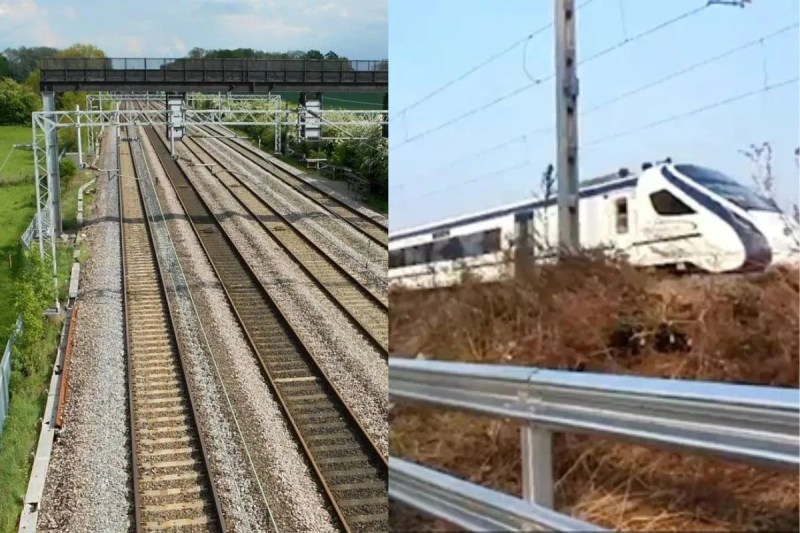
Metal beam crash barriers to be installed along tracks in Jodhpur railway division. (Patrika Photo)
Cattle Run Over on Railway Track: The Jodhpur Railway Division is installing metal beam crash barriers on the railway tracks from Jodhpur via Merta to Phulera, and on the Jodhpur to Bhildi section, as well as the Barmer-Balotra section. This initiative aims to significantly reduce the loss of life and property caused by accidents such as cattle run-overs. The Railway Board had approved the installation of crash barriers along a 126 km stretch of track between Jodhpur and Phulera, and between Jodhpur and Jalore-Samdari-Dhanera, at a cost of ₹110 crore, four months ago.
Due to the absence of metal crash barriers on both sides of the railway track in this section, the Vande Bharat train, operating between Jodhpur and Delhi Cantt, is currently restricted to a speed of 108 km/h between Jodhpur and Jaipur. In contrast, the train operates at full speed between Jaipur and Delhi. Once the crash barriers are installed, the Vande Bharat train will be able to run at a speed of 130 km/h. A similar situation exists for the Jodhpur-Sabarmati route. The Ministry of Railways has directed that this work be completed within the next six months. In June, Indian Railways had issued two tenders worth ₹70.66 crore for the installation of crash barriers between Jodhpur and Phulera.
North Western Railway has issued two tenders worth ₹70.66 crore for the installation of metal beam crash barriers between Jodhpur and Phulera. It is expected that upon completion of the crash barrier installation between Jodhpur and Phulera, the speed of trains will increase from 110 km/h to 130 km/h. Indian Railways categorises its tracks into three categories based on speed.
In the Jaipur rail section, the railway administration has nearly completed the installation of metal crash barriers across most of the railway track to prevent the intrusion of people and cattle. With the installation of crash barriers, illegal intrusions onto the railway tracks have been significantly curbed. Consequently, trains are now operating without obstruction at speeds exceeding 130 km/h in this section.
According to railway sources, it is estimated that a one-minute stoppage of a diesel-powered passenger train incurs a loss of up to ₹20,000 for the railways. For an electric train, the loss is ₹20,500 per minute. A diesel-powered goods train incurs a financial loss of ₹13,350 per minute of stoppage, while an electric goods train incurs a loss of ₹13,400. The railways directly bear these financial losses themselves.
Published on:
29 Oct 2025 12:49 pm
Big News
View AllJodhpur
Rajasthan
Trending

